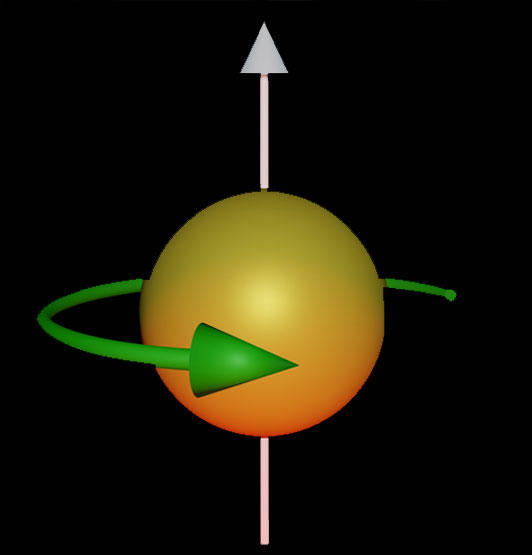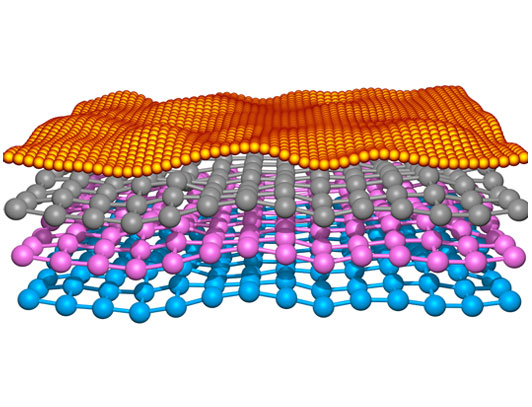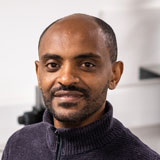Dr Fasil Kidane Dejene
Lecturer – Physics
Dr Fasil Kidane Dejene is an experimental physicist with a broad background in designing, preparing and characterising functional nanodevices for computing and data storage technologies. His current focus is the development of novel ways to harness the angular momentum of electron spin for energy-efficient and ultrafast computing technologies based on new quantum materials. Alongside this, he is modelling and validating magnetically actuated and programmable nanoscale heat valves, heat switches and heat-driven magnetic sensing that use computing waste heat.
Quantum materials for energy-efficient nanotechnology
As microchips shrink to accommodate exponential demand for computing power, the limits of current semiconductor technology are becoming increasingly apparent. Spintronics – an alternative approach to conventional electronics based on electron spin rather than electric charge – may provide the solution. Spin caloritronics – Fasil's research area – could offer new possibilities for controlling heat flow at the nanoscale and improve heat-assisted data processing technological applications.
The heat generated in our devices – phones, laptops and so on – is detrimental to their performance but, if harnessed, could be used to power them and even process information.

My work explores ways to do this in carefully engineered heterostructure interfaces.
What’s more, spin caloritronics – the study of the coupling between heat and spin transport (or exchange) in, for example, magnetic sensors – offers new functionality to applications across a variety of fields including the defence, medical, IT and automotive industries.
I'm developing proof-of-concept devices – using a range of materials, including graphene and other two-dimensional quantum materials – that show real promise for low power and high efficiency device operation.
The main bottleneck to advancing spin caloritronic concepts into applications is the low efficiency of these effects and the limited choice of spin caloritronic materials.
My research in quantum materials spintronics will support world-leading research in modern nanoelectronics technologies.

And, there are further problems – for instance, platinum (the most widely used material) is an expensive and limited resource – so developing new, low-cost alternatives is vital.
Quantum materials – which offer exotic emergent quantum properties – are very promising.
Not only are they good thermoelectric generators and harvesters, they also have uniquely tuneable – via voltage, carefully engineered interfaces and thickness – spintronic properties.
My research journey
I completed my undergraduate studies at Debub (now Hawassa) University and then continued my education at Addis Ababa University with a Masters in Physics, specialising in organic solar cells.
In 2008, I secured a full scholarship and moved to the University of Groningen (Netherlands) to pursue a Masters in Nanoscience and then a PhD in Physics – studying various spintronic, thermoelectric and nanoelectronic devices.
I moved to Germany, in 2015, as a Postdoctoral Fellow at the Max Planck Institute for Microstructure Physics. During this time, I had the honour of working alongside Professor Stuart Parkin – a pioneer in spintronics – helping to establish his Nanoengineered Ions and Spin Systems Group. As part of this work, I spearheaded nanofabrication tools procurement and process development.
When I took up my current post at Loughborough in 2018, I was also a Visiting Researcher at the Technische Universität Dresden.
Over the years, my research has been recognised by a number of awards, including a prestigious Newton International Fellowship and the Technische Universität Dresden Open Topic Postdoctoral Fellowship.
At Loughborough, we have excellent nanomaterial fabrication and characterisation facilities with experts in theoretical and experimental condensed matter physics as well as photonics.
My research in quantum materials spintronics will enable key advances in these respective fields creating world-leading research in modern nanoelectronics technologies.
I now co-lead the University's Applied Radiation and Medical Physics Group (ARAMP) with Jenny Spiga and Sarah Bugby. Working with researchers, clinicians and industry partners worldwide, we are developing new techniques to solve societal challenges and improve patient care.
